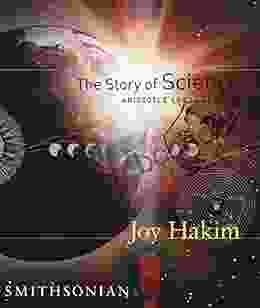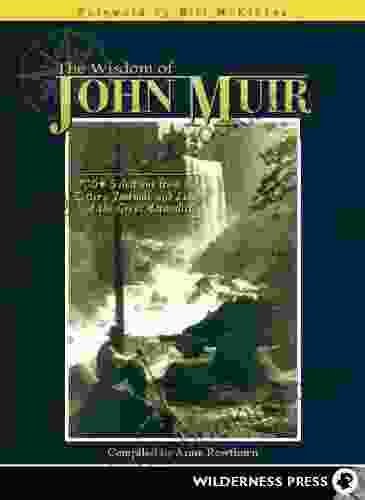The Story of Science: Aristotle Leads the Way

4.7 out of 5
| Language | : | English |
| File size | : | 209723 KB |
| Text-to-Speech | : | Enabled |
| Word Wise | : | Enabled |
| Print length | : | 256 pages |
In the annals of scientific history, Aristotle stands as a towering figure, a pioneer whose ideas laid the foundation for our understanding of the cosmos. From his meticulous observations to his groundbreaking theories, Aristotle's contributions to the scientific enterprise spanned a vast array of disciplines, transforming the very fabric of human knowledge.
Aristotle's Legacy: A Tapestry of Scientific Inquiry
Born in Stagira, Greece, in 384 BCE, Aristotle's insatiable curiosity and relentless pursuit of knowledge led him to make profound advancements in a multitude of fields. As a student of Plato, he honed his philosophical skills, but it was his departure from his mentor's idealistic realm that truly ignited his scientific brilliance.
Aristotle believed that true knowledge lay not in abstract concepts but in the empirical world. He emphasized the importance of observation, experimentation, and inductive reasoning, laying the groundwork for the scientific method we employ today. His writings on physics, astronomy, biology, and other natural sciences established the foundations upon which subsequent generations of scientists built.
The Birth of Physics: Aristotle's Laws of Motion
In the realm of physics, Aristotle's contributions were groundbreaking. He introduced the concept of four fundamental elements (earth, water, air, and fire) and proposed that everything in the universe was composed of these elements. While later scientific advancements have refined our understanding of matter, Aristotle's ideas laid the groundwork for the study of physics.
Aristotle also formulated the first laws of motion, which described the relationship between force, mass, and acceleration. His observations led to the understanding that heavier objects fall faster than lighter ones, a concept that was later expanded upon by Galileo and Newton.
Astronomy: Unveiling the Celestial Sphere
Aristotle turned his keen gaze to the heavens, revolutionizing our understanding of the cosmos. He rejected the prevailing geocentric model and proposed a heliocentric system, where the Earth revolved around the central Sun. While his model placed the Earth in the center, it paved the way for Copernicus's later heliocentric theory.
Aristotle's astronomical observations led to the identification of various celestial bodies, including the moon, planets, and stars. He classified stars into different magnitudes and observed the Milky Way, proposing that it was composed of countless faint stars.
Biology: Exploring the Living World
Aristotle's curiosity extended to the living world, where he made significant contributions to biology. He conducted extensive studies on animals, dissecting thousands of specimens and meticulously recording their anatomy and behavior.
Aristotle's biological observations led to the development of a comprehensive classification system for animals, based on their physical characteristics and habits. He recognized the importance of heredity and proposed that traits were passed down from parents to offspring.
The Enduring Influence of Aristotle's Legacy
Aristotle's scientific legacy extended far beyond his lifetime. His writings were widely studied and translated throughout the Middle Ages and Renaissance, becoming the cornerstone of scientific education. His ideas influenced scholars such as Albertus Magnus, Thomas Aquinas, and Roger Bacon, who further developed his scientific methods.
Even today, Aristotle's contributions continue to resonate in modern science. His emphasis on observation, experimentation, and inductive reasoning form the foundation of the scientific method. His classification systems and biological observations laid the groundwork for taxonomy and ecology.
: The Tapestry of Science Unraveled
Aristotle's pioneering spirit and relentless pursuit of knowledge transformed the course of human history. His contributions to science established the foundations for our understanding of the universe, from the smallest particles to the vast expanse of the cosmos. His legacy continues to inspire scientists and scholars today, reminding us of the power of observation, critical thinking, and the unyielding pursuit of truth.
As we continue to unravel the intricate tapestry of the universe, we must acknowledge the profound debt we owe to Aristotle, the ancient Greek philosopher who led the way in the quest for scientific knowledge. May his spirit of inquiry forever guide us in our pursuit of a deeper understanding of the world around us.
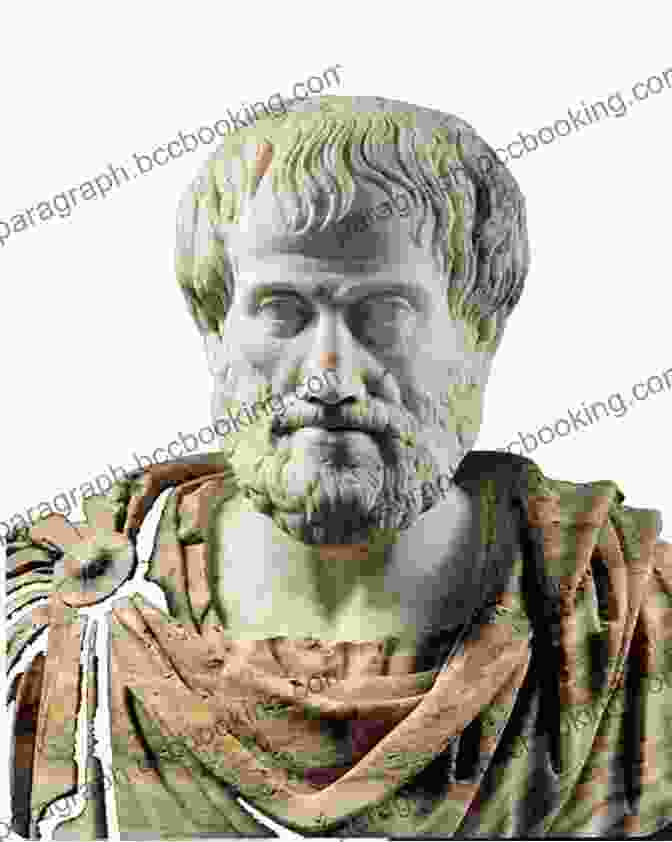
4.7 out of 5
| Language | : | English |
| File size | : | 209723 KB |
| Text-to-Speech | : | Enabled |
| Word Wise | : | Enabled |
| Print length | : | 256 pages |
Do you want to contribute by writing guest posts on this blog?
Please contact us and send us a resume of previous articles that you have written.
 Book
Book Novel
Novel Page
Page Chapter
Chapter Text
Text Story
Story Genre
Genre Reader
Reader Library
Library Paperback
Paperback E-book
E-book Magazine
Magazine Newspaper
Newspaper Paragraph
Paragraph Sentence
Sentence Bookmark
Bookmark Shelf
Shelf Glossary
Glossary Bibliography
Bibliography Foreword
Foreword Preface
Preface Synopsis
Synopsis Annotation
Annotation Footnote
Footnote Manuscript
Manuscript Scroll
Scroll Codex
Codex Tome
Tome Bestseller
Bestseller Classics
Classics Library card
Library card Narrative
Narrative Biography
Biography Autobiography
Autobiography Memoir
Memoir Reference
Reference Encyclopedia
Encyclopedia Martha Piper
Martha Piper Joseph Conrad
Joseph Conrad John Nunn
John Nunn Joshua Rubenstein
Joshua Rubenstein Joshua Rosenbaum
Joshua Rosenbaum Monroe Ariel
Monroe Ariel Jonas Martin
Jonas Martin Maureen Callahan
Maureen Callahan John Thorne
John Thorne Mark Anielski
Mark Anielski Joyce E Dains
Joyce E Dains Joseph Finklestone
Joseph Finklestone Juan Felipe Herrera
Juan Felipe Herrera Steven Bradley
Steven Bradley Timothy F Geithner
Timothy F Geithner John Miller
John Miller Larry Mueller
Larry Mueller John Z Guzlowski
John Z Guzlowski Josh Alwine
Josh Alwine Terry Newman
Terry Newman
Light bulbAdvertise smarter! Our strategic ad space ensures maximum exposure. Reserve your spot today!
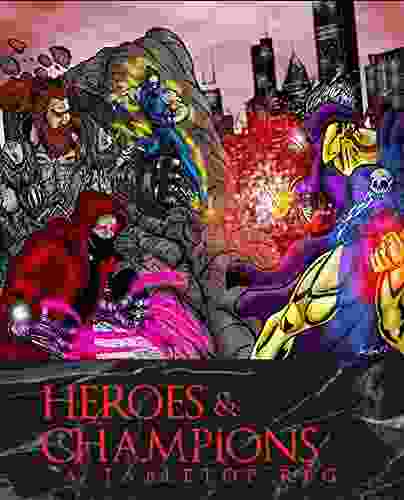
 Manuel ButlerHeroes and Champions Core Rulebook: A Comprehensive Guide to the Tabletop RPG
Manuel ButlerHeroes and Champions Core Rulebook: A Comprehensive Guide to the Tabletop RPG Ralph TurnerFollow ·4k
Ralph TurnerFollow ·4k Vince HayesFollow ·14.8k
Vince HayesFollow ·14.8k Anthony WellsFollow ·14.6k
Anthony WellsFollow ·14.6k Guy PowellFollow ·19.7k
Guy PowellFollow ·19.7k Ibrahim BlairFollow ·7.5k
Ibrahim BlairFollow ·7.5k Gabriel HayesFollow ·19.4k
Gabriel HayesFollow ·19.4k Kirk HayesFollow ·19k
Kirk HayesFollow ·19k Henry David ThoreauFollow ·19k
Henry David ThoreauFollow ·19k
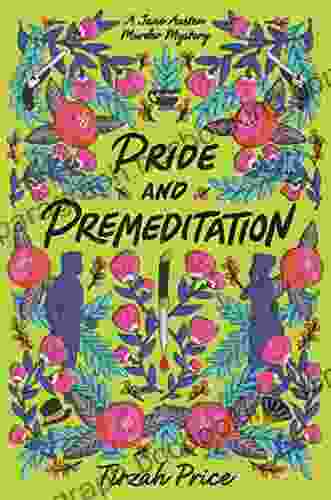
 Joseph Foster
Joseph FosterUnravel the Enigmatic Murders in "Pride and...
Dive into a World...

 Jeffery Bell
Jeffery BellTrauma-Focused CBT for Children and Adolescents: The...
Trauma is a...

 Jorge Luis Borges
Jorge Luis BorgesSense and Second Degree Murder: A Jane Austen Murder...
Prepare yourself for a...

 Chase Simmons
Chase SimmonsUnleash the Vibrant World of Watercolor: An Enchanting...
In the world of art, watercolor painting...

 Rubén Darío
Rubén DaríoAmerican Funny Animal Comics In The 20th Century: A...
Step into a bygone era of laughter and...
4.7 out of 5
| Language | : | English |
| File size | : | 209723 KB |
| Text-to-Speech | : | Enabled |
| Word Wise | : | Enabled |
| Print length | : | 256 pages |


